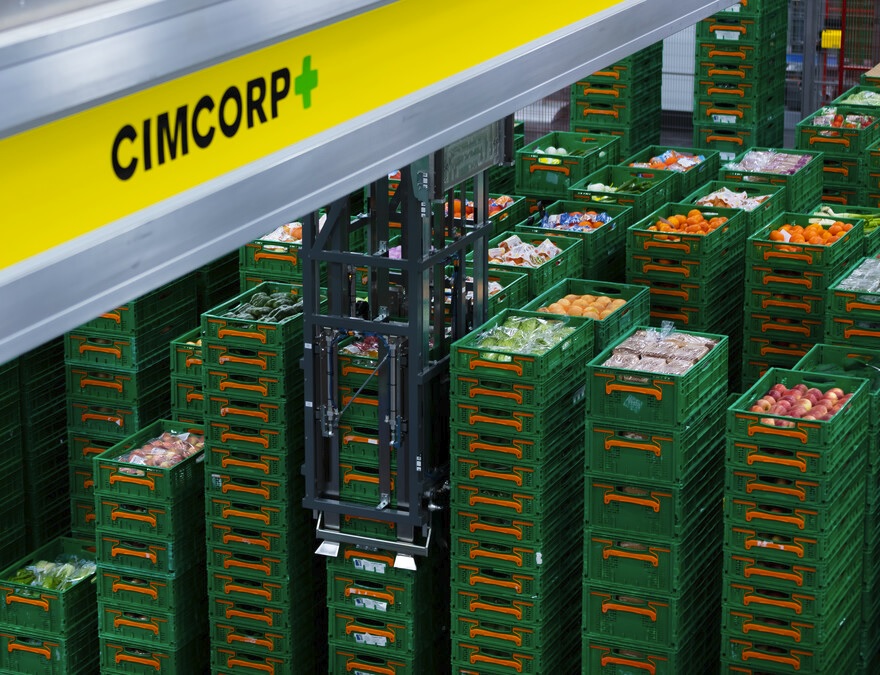Sustainable Automation
25th May 2023

Automation can help get more out of less, making it intrinsically sustainable. Automation and strategically planned intralogistics can enable businesses in diverse industries to become more eco-friendly. Global intralogistics specialist, Cimcorp has customers in two core sectors – grocery retail and the tire industry – and sustainability is becoming increasingly important in both.
Energy Efficiency
The increasing focus on sustainability, combined with high energy prices, means that energy efficiency is more important than ever. The benefit of Cimcorp’s robotic technology in terms of energy use is tangible, as the company’s gantry robots feature low energy consumption. With the structure of each gantry robot formed from aluminium, they are lightweight yet robust. As the robots are not heavy, they accelerate and move fast, optimising all the potential handling capacity for products moved in the distribution centre.
In addition, gantry robots can carry multiple crates or cases simultaneously, instead of just grabbing one. Cimcorp’s robotic crate solutions enable a maximum load of 250 kilograms at a time, with stacks being up to 2.5 meters tall. This means that high volumes can be moved and handled quickly and efficiently.
Cimcorp’s robots also reuse energy. Braking energy is recovered to the power grid, making the robots even more energy efficient. The robots can gather and feed back approximately 30% of the energy.
Fuller Trucks Mean Fewer Trucks
A Warehouse Control System helps to organise intralogistics and streamline the overall supply chain in a more sustainable way. Through optimising the loading of delivery vehicles, intelligent software enables space to be utilised more efficiently, leading to fuller trucks and therefore fewer trucks. This means fewer kilometres being driven and less pollution from exhaust fumes.
Automation can have a huge impact on sustainability in the grocery retail industry, where a faster supply chain enables longer shelf life, leading to less food waste. Optimising intralogistics can reduce the time taken for produce to travel from field to store by up to half. Cimcorp has successfully accelerated the intralogistics of food and beverage customers around the world. Examples include helping Mercadona, Spain’s biggest grocery retailer, to move produce to stores in under 24 hours and helping Olvi, the Finnish brewery, to move warehouse stock as orders to stores in under 24 hours when needed.
Reusable Crates
Many modern grocers utilise reusable plastic crates (RPCs) to replace cardboard boxes as the method of transport for fresh produce from the farm to the store shelf. Capable of thousands of journeys, RPCs have a long and sustainable lifecycle. Cimcorp’s automation solutions work perfectly with RPCs.
Automation also enhances sustainability in the tyre industry. Automated tyre intralogistics significantly reduces scrap in all process areas. With Cimcorp’s Warehouse Control System, tyre manufacturers can minimise intermediate storage and avoid unnecessary scrapping of materials. If there is any disruption to the manufacturing process, all individual tyre components can be tracked and traced to avoid scrapping of the whole inventory.

